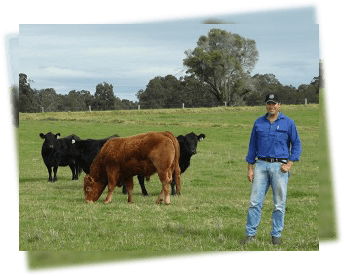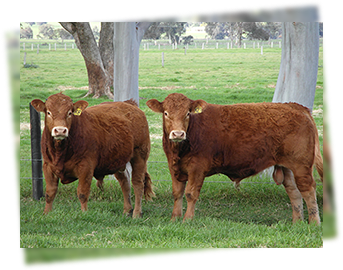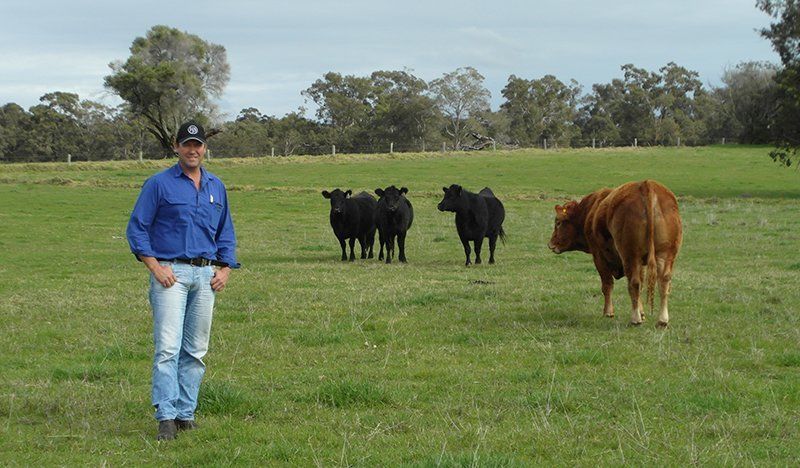The Galati family from Brunswick, WA have been involved in the cattle business for many years. Like many other producers in their area, the Galati’s were originally 100% focused on dairy production.
However as times inevitability changed, so did the Galati’s and now the family business is solely a beef producer, targeting mainly the domestic butcher and supermarket trade from the on-farm feedlot.
Running predominately Angus and Angus-Friesian cross cows, Rodney Galati says the operation have been purchasing Limousin bulls for 12 years for their consistent performance when used in the crossbreeding operation.
“Whilst we have trialled other breeds, we keep coming back to Limousin bulls because they are such a safe breed. You can put them over any type of cow and you will get a great carcase,” Rodney said.
Including the calves that are bred from the family’s 340 breeders, some 2000 cattle are feedlotted by the Galati’s every year.
“We try and buy Limousin cross cattle for the feedlot as we know they are the breed that provide the most profitability,” Rodney said.
This belief was backed up in 2015, when a pen of the Galati’s Limousin cross cattle won the inaugural Harvey Beef Gate 2 Plate feedlot challenge in south west WA.
The Limousin-Angus cross pen of 2 steers and 1 heifer was awarded the top honours in a field of some 60 entries, representing a wide range of breeds and crossbreeding programs.
Organised by the Albany Agricultural Society, the feedlot challenge aimed to benchmark the performance of local cattle so the industry can better compete on an international level.
With an average induction weight of 340kg, the entries were fed for 77 days at an Albany feedlot with a wide range of measurements and data recorded on them.
Rodney was honoured that his family’s cattle had been recognised in such a well contested competition, but not all that surprised with how well their cattle had performed.
“The pen we entered into the competition was typical of the cattle we are breeding for our own feedlot operation. We feel the Limousin cross cattle are an ideal feedlot animal,” Rodney said.






